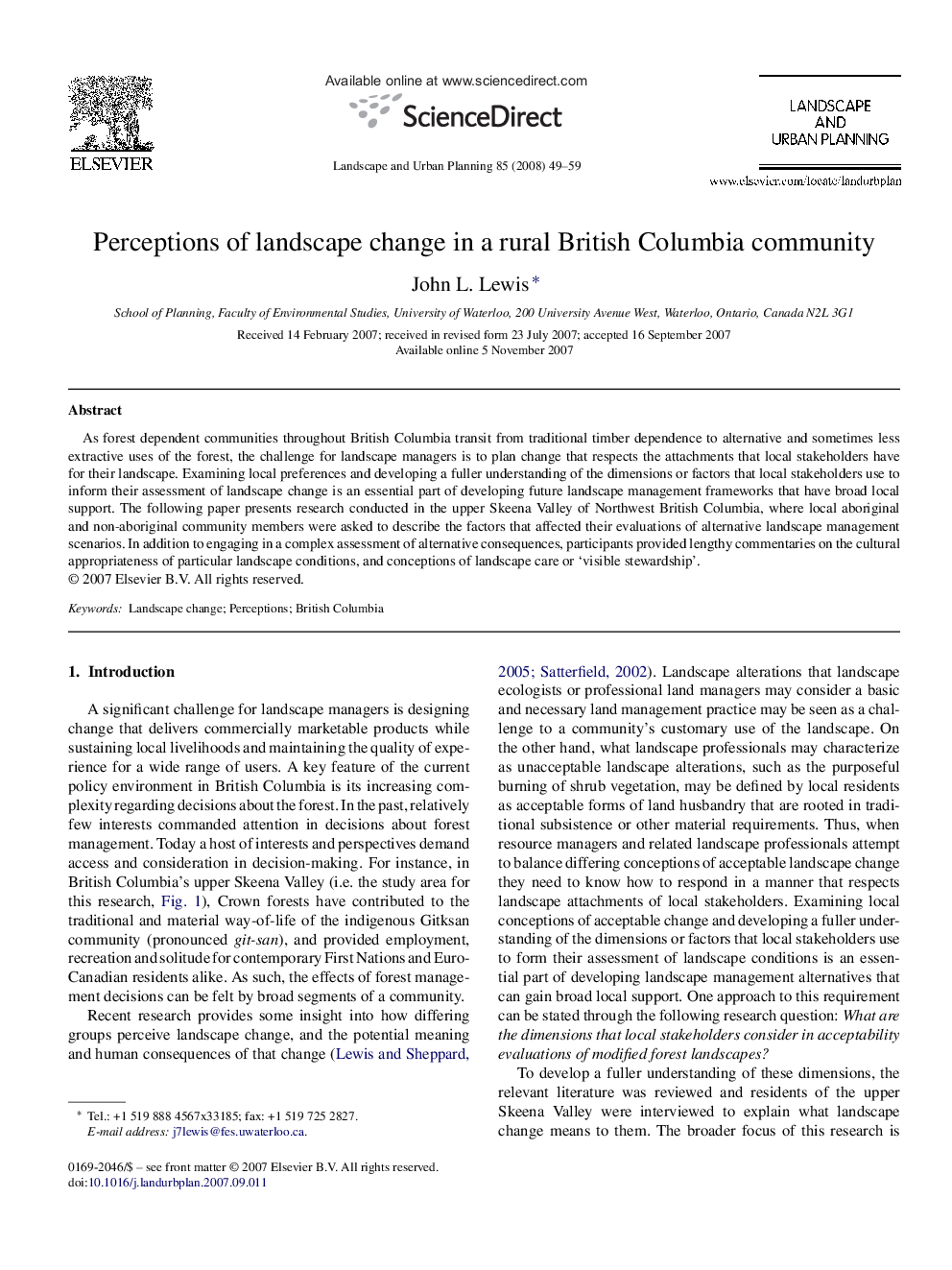| Article ID | Journal | Published Year | Pages | File Type |
|---|---|---|---|---|
| 1050505 | Landscape and Urban Planning | 2008 | 11 Pages |
As forest dependent communities throughout British Columbia transit from traditional timber dependence to alternative and sometimes less extractive uses of the forest, the challenge for landscape managers is to plan change that respects the attachments that local stakeholders have for their landscape. Examining local preferences and developing a fuller understanding of the dimensions or factors that local stakeholders use to inform their assessment of landscape change is an essential part of developing future landscape management frameworks that have broad local support. The following paper presents research conducted in the upper Skeena Valley of Northwest British Columbia, where local aboriginal and non-aboriginal community members were asked to describe the factors that affected their evaluations of alternative landscape management scenarios. In addition to engaging in a complex assessment of alternative consequences, participants provided lengthy commentaries on the cultural appropriateness of particular landscape conditions, and conceptions of landscape care or ‘visible stewardship’.
